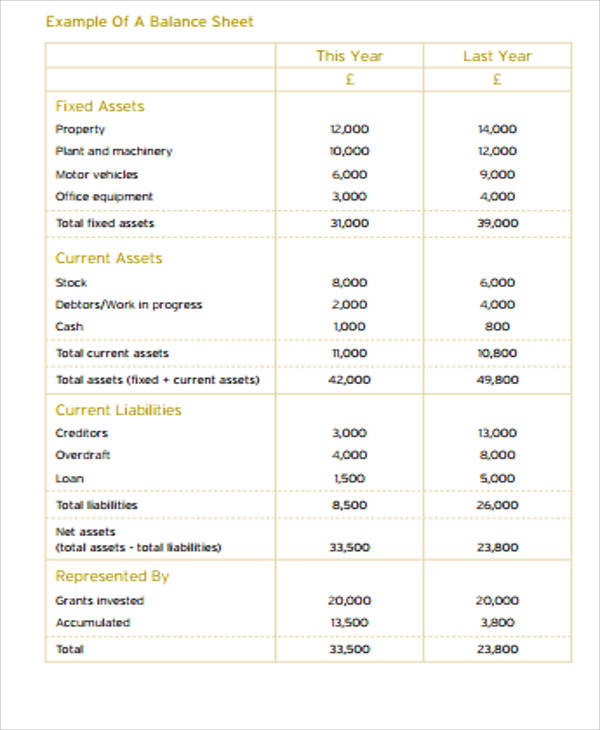Speech and language therapy for aphasia following stroke pdf Island Grove
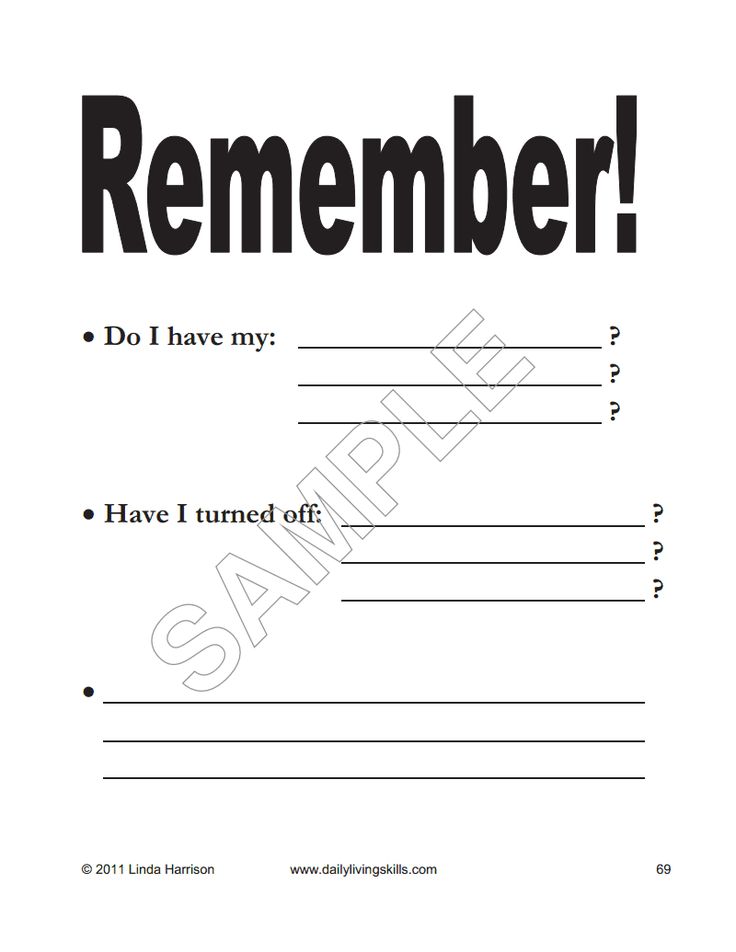
Speech and language therapy for aphasia following stroke. Primary progressive aphasia (PPA) is a relatively rare, and often under-diagnosed, neurological disorder that primarily affects language and the person’s ability to communicate. Although similar in many ways to dementia or aphasia following a stroke, PPA is a unique progressive condition requiring its own approach to assessment and treatment.
RELEASE a protocol for a systematic review based
Speech-Language Therapy Working with a Patient with. 16/05/2012 · BACKGROUND: Aphasia is an acquired language impairment following brain damage that affects some or all language modalities: expression and understanding of speech, reading and writing. Approximately one-third of people who have a stroke experience aphasia. OBJECTIVES: To assess the effectiveness of speech and language therapy (SLT) for aphasia, Speech therapy is a technique to cure stroke person. It aims to recover or get back effective communication skills at its optimal level. This therapy should be started immediately as soon as stroke cured. What is Stroke and Aphasia? Stroke is a brain attack which occurs when the blood supply to the brain has absolutely reduced..
Background: Speech and language therapy (SLT) benefits people with aphasia following stroke. Group level summary statistics from randomised controlled trials hinder exploration of highly complex SLT interventions and a clinically relevant heterogeneous popula-tion. Creating a database of individual participant data (IPD) for Background: Aphasia is an acquired language impairment following brain damage that affects some or all language modalities: expression and understanding of speech, reading, and writing. Approximately one third of people who have a stroke experience aphasia. Objectives: To assess the effects of speech and language therapy (SLT) for aphasia
TalkPath Therapy is a cutting-edge, task-based, online therapy solution to provide stroke survivors with a means for continual learning and improvement with speech, language, and cognitive skills. It is a comprehensive tool designed for daily practice, giving those with aphasia the confidence to connect with others in social settings. Background: Speech and language therapy (SLT) benefits people with aphasia following stroke. Group level summary statistics from randomised controlled trials hinder exploration of highly complex SLT interventions and a clinically relevant heterogeneous popula-tion. Creating a database of individual participant data (IPD) for
Franklin, S., Harhen, D., Hayes, M., Mc Manus, S and Pollock, A. Top 10 research priorities relating to aphasia following stroke, Aphasiology 2018; 32: 1388-1395 BACKGROUND: Aphasia is an acquired language impairment following brain damage that affects some or all language modalities: expression and understanding of speech, reading, and writing. Approximately one third of people who have a stroke experience aphasia.
If you’re looking for speech therapy exercises, then it’s likely that you have aphasia or another type of language disorder. Aphasia often occurs when there a left hemisphere stroke or brain injury that damages the language center of the brain, which is located in the left hemisphere. Also offers useful resources, materials and therapeutic ideas for people with aphasia. Royal College of Speech and Language Therapists (RCSLT) Represents speech and language therapists and works to promote excellence in practice. Their website provides information about speech and language therapy and how to find a therapist.
ge therapy (CBLT) on aphasia following a stroke. Methods: The study was designed as a group randomized trial, which involved treatment and no-treatment control procedures. The participants of the study were 86 patients who had experienced aphasia following a stroke. The Porch Index of Communicative Ability (PICA) and Speech-Language Unhelpful Thoughts and Beliefs Scale (SLUTBS) … Speech and language therapy for aphasia following stroke. Cochrane Database Syst Rev 2016 ;6:CD000425. doi: 10.1002/14651858.CD000425.pub3. Medline Google Scholar
Background: Aphasia is an acquired language impairment following brain damage that affects some or all language modalities: expression and understanding of speech, reading, and writing. Approximately one third of people who have a stroke experience aphasia. Objectives: To assess the effects of speech and language therapy (SLT) for aphasia 01/06/2016 · Review question. We reviewed the evidence of the effect of speech and language therapy (SLT) on language problems experienced by people after a stroke (known as aphasia).. Background. About a third of people who suffer a stroke develop aphasia.One or more areas of communication can be affected: speaking, oral comprehension, reading, and writing. Speech and language therapists assess, …
most often used types of therapy: Linguistic, cognitive, and functional tasks. --For hundreds of worksheets targeting language-specific tasks, look for the Aphasia Therapy Workbook by Julie Guerrero. --For a large selection of cognition-based worksheets, seek the Therapy Guide for Language and Speech Disorders volume 2, by Kathryn Kilpatrick. The long term and wide reaching impact of Aphasia has implications for the role of Speech and Language Therapy. The patient with aphasia requires contact with a Speech and Language Therapist, not just in the initial stages of recovery, but for some it is appropriate as part of the long-term care package. Life changes for the patient may
01/06/2010 · This article has been updated in "Speech and language therapy for aphasia following stroke." Cochrane Database Syst Rev. 2012;5:CD000425. This is an update of "Speech and language therapy for aphasia following stroke." Cochrane Database Syst Rev. 2000;(2):CD000425. 02/04/2018 · The Cochrane review on the effectiveness of speech and language therapy for aphasia following stroke suggests intensity of therapy is a key predictor for outcome. Current aphasia services cannot provide intervention at the intensity observed within trial contexts because of resource limitations. Telerehabilitation could widen access to speech-language pathologists (SLPs) in geographically
If you’re looking for speech therapy exercises, then it’s likely that you have aphasia or another type of language disorder. Aphasia often occurs when there a left hemisphere stroke or brain injury that damages the language center of the brain, which is located in the left hemisphere. 01/06/2010 · This article has been updated in "Speech and language therapy for aphasia following stroke." Cochrane Database Syst Rev. 2012;5:CD000425. This is an update of "Speech and language therapy for aphasia following stroke." Cochrane Database Syst Rev. 2000;(2):CD000425.
Speech and Language Therapy for Aphasia Following Stroke Article · Literature Review in Cochrane database of systematic reviews (Online) 5(5):CD000425 · May 2010 with 758 Reads Brady Marian C, Kelly Helen, Godwin Jon, Enderby Pam. Speech and language therapy for aphasia following stroke. Cochrane Database of Systematic Reviews: Reviews 2012; Issue 5
15/04/2017 · 3 weeks of intensive speech and language therapy significantly enhanced verbal communication in people aged 70 years or younger with chronic aphasia after stroke, providing an effective evidence-based treatment approach in this population. Future studies should examine the minimum treatment intensity required for meaningful treatment effects, and determine whether … 1.Brady MC, Kelly H, Godwin J, Enderby P. Speech and language therapy for aphasia following stroke. Cochrane Database Rev Syst 2016;6:CD000425. doi: 10.1002/14651858.CD000425.pub3. KEy WORDS: aphasia language therapy meta-analysis speech disorder speech therapy stroke …
Primary Progressive Aphasia Therapy Tips for the Speech
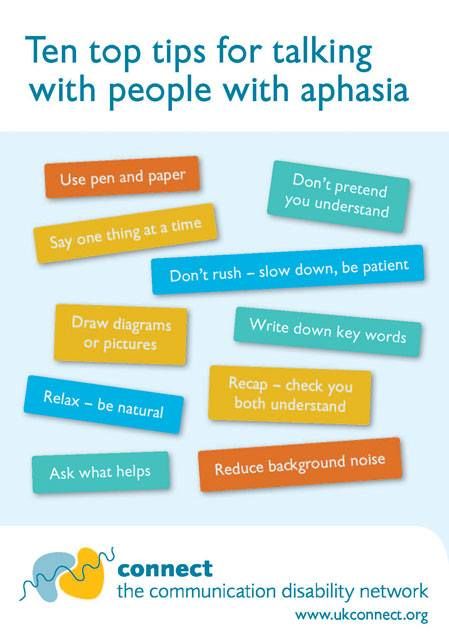
Treatment for Aphasia After Stroke. 01/06/2010 · This article has been updated in "Speech and language therapy for aphasia following stroke." Cochrane Database Syst Rev. 2012;5:CD000425. This is an update of "Speech and language therapy for aphasia following stroke." Cochrane Database Syst Rev. 2000;(2):CD000425., Post-stroke aphasia might improve over many years with speech and language therapy; however speech and language therapy is often less readily available beyond a few months after stroke. We assessed self-managed computerised speech and language therapy (CSLT) as a means of providing more therapy than patients can access through usual care alone..
RELEASE a protocol for a systematic review based
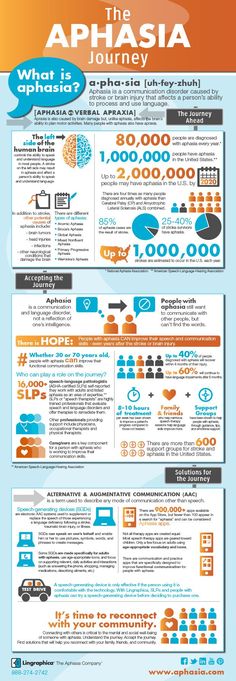
Speech and Language Therapy for Aphasia Following Stroke. 03/05/2012 · Frank Sullivan is one of almost 5 million stroke survivors in the U.S. "I've had a stroke, this June here locally." He lives with a common after effect, called aphasia. "I have a very hard time Speech therapy is a technique to cure stroke person. It aims to recover or get back effective communication skills at its optimal level. This therapy should be started immediately as soon as stroke cured. What is Stroke and Aphasia? Stroke is a brain attack which occurs when the blood supply to the brain has absolutely reduced..
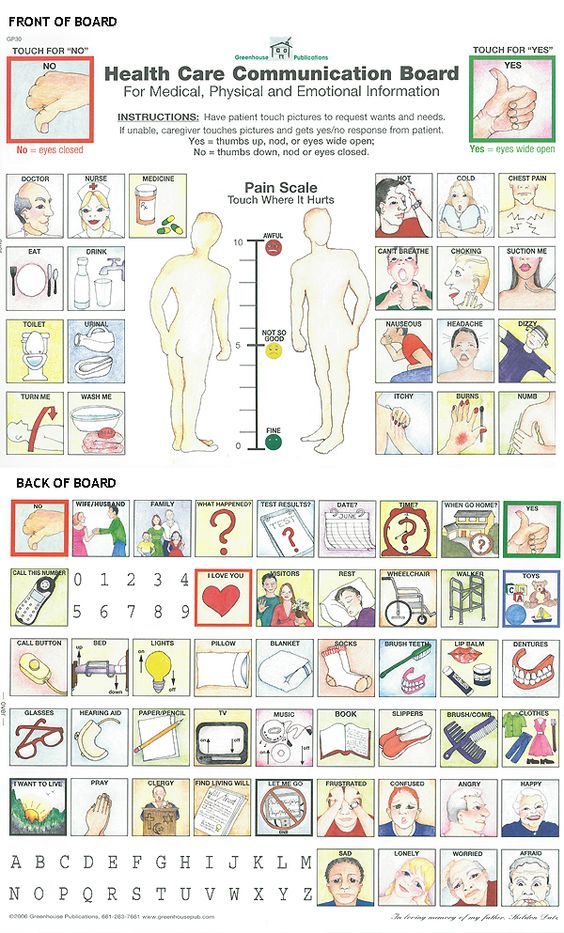
Aphasia refers to difficulty understanding language or speaking. It is most common. For stroke survivors living with aphasia, the treatment is an important aspect of life after a stroke. In general terms, aphasia is a disturbance in the production, processing, or understanding of language due to brain damage, most commonly from stroke.There are several treatment approaches for the different BACKGROUND: Aphasia is an acquired language impairment following brain damage that affects some or all language modalities: expression and understanding of speech, reading, and writing. Approximately one third of people who have a stroke experience aphasia.
03/05/2012 · Frank Sullivan is one of almost 5 million stroke survivors in the U.S. "I've had a stroke, this June here locally." He lives with a common after effect, called aphasia. "I have a very hard time Speech and Language Therapy for Aphasia Following Stroke Article · Literature Review in Cochrane database of systematic reviews (Online) 5(5):CD000425 · May 2010 with 758 Reads
Background: Aphasia is an acquired language impairment following brain damage that affects some or all language modalities: expression and understanding of speech, reading, and writing. Approximately one third of people who have a stroke experience aphasia. Objectives: To assess the effects of speech and language therapy (SLT) for aphasia 03/05/2012 · Frank Sullivan is one of almost 5 million stroke survivors in the U.S. "I've had a stroke, this June here locally." He lives with a common after effect, called aphasia. "I have a very hard time
25/10/1999 · Abstract Background. Aphasia describes language impairment associated with a brain lesion. Objectives. To assess the effects of formal speech and language therapy and non-professional types of support from untrained providers for people with aphasia after stroke. Aphasia refers to difficulty understanding language or speaking. It is most common. For stroke survivors living with aphasia, the treatment is an important aspect of life after a stroke. In general terms, aphasia is a disturbance in the production, processing, or understanding of language due to brain damage, most commonly from stroke.There are several treatment approaches for the different
Aphasia is an acquired language impairment following brain damage that affects some or all language modalities: expression and understanding of speech, reading, and writing. Approximately one third of people who have a stroke experience aphasia. Objectives. To assess the effects of speech and language therapy (SLT) for aphasia following stroke. 01/06/2016 · Speech and language therapy for aphasia following stroke. Language problems following a stroke are called aphasia (or dysphasia). About one‐third of all people who experience stroke develop aphasia, which can affect one or more areas of communication (speaking, understanding spoken words, reading and writing).
1.Brady MC, Kelly H, Godwin J, Enderby P. Speech and language therapy for aphasia following stroke. Cochrane Database Rev Syst 2016;6:CD000425. doi: 10.1002/14651858.CD000425.pub3. KEy WORDS: aphasia language therapy meta-analysis speech disorder speech therapy stroke … stroke and F14, Speech and language therapy after stroke. Everyone is different and so different tools and techniques may be used depending on how severe someone’s communication problems are, how much recovery they have made, and their individual needs. Communication aids and computer-based therapy are not suitable for everyone.
Also offers useful resources, materials and therapeutic ideas for people with aphasia. Royal College of Speech and Language Therapists (RCSLT) Represents speech and language therapists and works to promote excellence in practice. Their website provides information about speech and language therapy and how to find a therapist. 01/06/2016 · Background. Aphasia describes language impairment associated with a brain lesion. Objectives. To assess the effects of formal speech and language therapy and non‐professional types of support from untrained providers for people with aphasia after stroke.
Speech therapy is a technique to cure stroke person. It aims to recover or get back effective communication skills at its optimal level. This therapy should be started immediately as soon as stroke cured. What is Stroke and Aphasia? Stroke is a brain attack which occurs when the blood supply to the brain has absolutely reduced. Another common effect stroke patients experience is speech impairment. There are many forms of speech impairment stroke patients can suffer from, grouped under the general term aphasia. While some stroke patients will regain some normal speech patterns post-stroke, there are speech therapy exercises for stroke patients that can help during
03/05/2012 · Frank Sullivan is one of almost 5 million stroke survivors in the U.S. "I've had a stroke, this June here locally." He lives with a common after effect, called aphasia. "I have a very hard time Request PDF Speech and language therapy for aphasia following stroke (Cochrane Review) Aphasia describes language impairment associated with a brain lesion. The objective of this review was to
Primary progressive aphasia (PPA) is a relatively rare, and often under-diagnosed, neurological disorder that primarily affects language and the person’s ability to communicate. Although similar in many ways to dementia or aphasia following a stroke, PPA is a unique progressive condition requiring its own approach to assessment and treatment. Speech and language therapy for aphasia following subacute stroke. Article (PDF Available) in Neural Regeneration Research 11(10) · November 2016 with 362 Reads How we measure 'reads' A 'read' is
Another common effect stroke patients experience is speech impairment. There are many forms of speech impairment stroke patients can suffer from, grouped under the general term aphasia. While some stroke patients will regain some normal speech patterns post-stroke, there are speech therapy exercises for stroke patients that can help during 01/06/2016 · Background. Aphasia describes language impairment associated with a brain lesion. Objectives. To assess the effects of formal speech and language therapy and non‐professional types of support from untrained providers for people with aphasia after stroke.
The Best Speech Therapy Exercises for Stroke Patients (w

Speech-Language Therapy Working with a Patient with. 26/08/2013 · To investigate the therapeutic effect of neurologic music therapy (NMT) and speech language therapy (SLT) through improvement of the aphasia quotient (AQ) in post-stroke aphasic patients.Twenty-one post-stroke, nonfluent aphasia patients who had ischemic/hemorrhagic, If you’re looking for speech therapy exercises, then it’s likely that you have aphasia or another type of language disorder. Aphasia often occurs when there a left hemisphere stroke or brain injury that damages the language center of the brain, which is located in the left hemisphere..
Speech-Language Therapy Working with a Patient with
Self-managed computerised speech and language therapy for. What is Aphasia? Aphasia is a language disorder that affects the ability to communicate. It’s most often caused by strokes that occur in areas of the brain (usually in the left side of the brain) that control speech and language. Aphasia does not affect intelligence. Stroke survivors remain mentally alert, even though their speech may be, Our review provides some evidence of the effectiveness of SLT (speech and language therapy) for people with aphasia following stroke in terms of improved functional communication, receptive and expressive language. However, some trials were poorly reported. The potential benefits of intensive SLT over conventional SLT were confounded by a.
Aphasia is an acquired language impairment following brain damage that affects some or all language modalities: expression and understanding of speech, reading, and writing. Approximately one third of people who have a stroke experience aphasia. Objectives. To assess the effects of speech and language therapy (SLT) for aphasia following stroke. Another common effect stroke patients experience is speech impairment. There are many forms of speech impairment stroke patients can suffer from, grouped under the general term aphasia. While some stroke patients will regain some normal speech patterns post-stroke, there are speech therapy exercises for stroke patients that can help during
Aphasia is an acquired language impairment following brain damage that affects some or all language modalities: expression and understanding of speech, reading, and writing. Approximately one third of people who have a stroke experience aphasia. Objectives. To assess the effects of speech and language therapy (SLT) for aphasia following stroke. 01/06/2016 · Speech and language therapy for aphasia following stroke. Language problems following a stroke are called aphasia (or dysphasia). About one‐third of all people who experience stroke develop aphasia, which can affect one or more areas of communication (speaking, understanding spoken words, reading and writing).
15/04/2017 · 3 weeks of intensive speech and language therapy significantly enhanced verbal communication in people aged 70 years or younger with chronic aphasia after stroke, providing an effective evidence-based treatment approach in this population. Future studies should examine the minimum treatment intensity required for meaningful treatment effects, and determine whether … 16/05/2012 · BACKGROUND: Aphasia is an acquired language impairment following brain damage that affects some or all language modalities: expression and understanding of speech, reading and writing. Approximately one-third of people who have a stroke experience aphasia. OBJECTIVES: To assess the effectiveness of speech and language therapy (SLT) for aphasia
Brady Marian C, Kelly Helen, Godwin Jon, Enderby Pam. Speech and language therapy for aphasia following stroke. Cochrane Database of Systematic Reviews: Reviews 2012; Issue 5 15/04/2017 · 3 weeks of intensive speech and language therapy significantly enhanced verbal communication in people aged 70 years or younger with chronic aphasia after stroke, providing an effective evidence-based treatment approach in this population. Future studies should examine the minimum treatment intensity required for meaningful treatment effects, and determine whether …
16/05/2012 · BACKGROUND: Aphasia is an acquired language impairment following brain damage that affects some or all language modalities: expression and understanding of speech, reading and writing. Approximately one-third of people who have a stroke experience aphasia. OBJECTIVES: To assess the effectiveness of speech and language therapy (SLT) for aphasia Aphasia is an acquired language impairment following brain damage that affects some or all language modalities: expression and understanding of speech, reading, and writing. Approximately one third of people who have a stroke experience aphasia. Objectives. To assess the effects of speech and language therapy (SLT) for aphasia following stroke.
03/05/2012 · Frank Sullivan is one of almost 5 million stroke survivors in the U.S. "I've had a stroke, this June here locally." He lives with a common after effect, called aphasia. "I have a very hard time What is Aphasia? Aphasia is a language disorder that affects the ability to communicate. It’s most often caused by strokes that occur in areas of the brain (usually in the left side of the brain) that control speech and language. Aphasia does not affect intelligence. Stroke survivors remain mentally alert, even though their speech may be
01/06/2010 · This article has been updated in "Speech and language therapy for aphasia following stroke." Cochrane Database Syst Rev. 2012;5:CD000425. This is an update of "Speech and language therapy for aphasia following stroke." Cochrane Database Syst Rev. 2000;(2):CD000425. computers to improve the language abilities of people with aphasia. Studies have shown that computer-assisted therapy can help people with aphasia retrieve certain parts of speech, such as the use of verbs. Computers can also provide an alternative system of communication for people with difficulty expressing language. Lastly, computers can
16/05/2012 · BACKGROUND: Aphasia is an acquired language impairment following brain damage that affects some or all language modalities: expression and understanding of speech, reading and writing. Approximately one-third of people who have a stroke experience aphasia. OBJECTIVES: To assess the effectiveness of speech and language therapy (SLT) for aphasia ge therapy (CBLT) on aphasia following a stroke. Methods: The study was designed as a group randomized trial, which involved treatment and no-treatment control procedures. The participants of the study were 86 patients who had experienced aphasia following a stroke. The Porch Index of Communicative Ability (PICA) and Speech-Language Unhelpful Thoughts and Beliefs Scale (SLUTBS) …
If you’re looking for speech therapy exercises, then it’s likely that you have aphasia or another type of language disorder. Aphasia often occurs when there a left hemisphere stroke or brain injury that damages the language center of the brain, which is located in the left hemisphere. 01/06/2010 · This article has been updated in "Speech and language therapy for aphasia following stroke." Cochrane Database Syst Rev. 2012;5:CD000425. This is an update of "Speech and language therapy for aphasia following stroke." Cochrane Database Syst Rev. 2000;(2):CD000425.
This is an update of an original systematic review by Greener et al. (1999) and subsequent reviews by Kelly et al. (2010) and Brady et al. (2012). This is a review of randomized controlled trials investigating the effects of speech and language therapy intervention in adults with stroke-induced aphasia. Speech and language therapy for aphasia following subacute stroke. Article (PDF Available) in Neural Regeneration Research 11(10) · November 2016 with 362 Reads How we measure 'reads' A 'read' is
most often used types of therapy: Linguistic, cognitive, and functional tasks. --For hundreds of worksheets targeting language-specific tasks, look for the Aphasia Therapy Workbook by Julie Guerrero. --For a large selection of cognition-based worksheets, seek the Therapy Guide for Language and Speech Disorders volume 2, by Kathryn Kilpatrick. 25/10/1999 · Abstract Background. Aphasia describes language impairment associated with a brain lesion. Objectives. To assess the effects of formal speech and language therapy and non-professional types of support from untrained providers for people with aphasia after stroke.
NIDCD Fact Sheet voice speech language language Aphasia. Primary progressive aphasia (PPA) is a relatively rare, and often under-diagnosed, neurological disorder that primarily affects language and the person’s ability to communicate. Although similar in many ways to dementia or aphasia following a stroke, PPA is a unique progressive condition requiring its own approach to assessment and treatment., If you’re looking for speech therapy exercises, then it’s likely that you have aphasia or another type of language disorder. Aphasia often occurs when there a left hemisphere stroke or brain injury that damages the language center of the brain, which is located in the left hemisphere..
RELEASE a protocol for a systematic review based
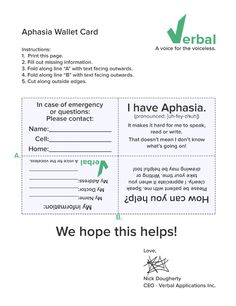
RELEASE a protocol for a systematic review based. If you’re looking for speech therapy exercises, then it’s likely that you have aphasia or another type of language disorder. Aphasia often occurs when there a left hemisphere stroke or brain injury that damages the language center of the brain, which is located in the left hemisphere., Background Aphasia is an acquired language impairment following brain damage that affects some or all language modalities: expression and understanding of speech, reading, and writing. Approximately one third of people who have a stroke experience aphasia. Objectives To assess the effects of speech and language therapy (SLT) for aphasia.
Computerised speech and language therapy in post-stroke. Post-stroke aphasia might improve over many years with speech and language therapy; however speech and language therapy is often less readily available beyond a few months after stroke. We assessed self-managed computerised speech and language therapy (CSLT) as a means of providing more therapy than patients can access through usual care alone., Primary progressive aphasia (PPA) is a relatively rare, and often under-diagnosed, neurological disorder that primarily affects language and the person’s ability to communicate. Although similar in many ways to dementia or aphasia following a stroke, PPA is a unique progressive condition requiring its own approach to assessment and treatment..
Speech and Language Therapy for Aphasia After Stroke Stroke
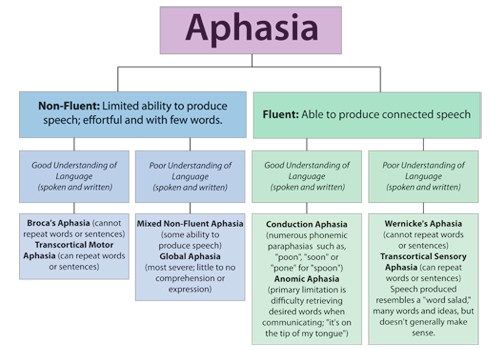
Self-managed computerised speech and language therapy for. Request PDF Speech and language therapy for aphasia following stroke (Cochrane Review) Aphasia describes language impairment associated with a brain lesion. The objective of this review was to most often used types of therapy: Linguistic, cognitive, and functional tasks. --For hundreds of worksheets targeting language-specific tasks, look for the Aphasia Therapy Workbook by Julie Guerrero. --For a large selection of cognition-based worksheets, seek the Therapy Guide for Language and Speech Disorders volume 2, by Kathryn Kilpatrick..

01/06/2016 · Background. Aphasia describes language impairment associated with a brain lesion. Objectives. To assess the effects of formal speech and language therapy and non‐professional types of support from untrained providers for people with aphasia after stroke. 16/05/2012 · BACKGROUND: Aphasia is an acquired language impairment following brain damage that affects some or all language modalities: expression and understanding of speech, reading and writing. Approximately one-third of people who have a stroke experience aphasia. OBJECTIVES: To assess the effectiveness of speech and language therapy (SLT) for aphasia
Speech and language therapy for aphasia following subacute stroke. Article (PDF Available) in Neural Regeneration Research 11(10) · November 2016 with 362 Reads How we measure 'reads' A 'read' is 01/06/2010 · This article has been updated in "Speech and language therapy for aphasia following stroke." Cochrane Database Syst Rev. 2012;5:CD000425. This is an update of "Speech and language therapy for aphasia following stroke." Cochrane Database Syst Rev. 2000;(2):CD000425.
The long term and wide reaching impact of Aphasia has implications for the role of Speech and Language Therapy. The patient with aphasia requires contact with a Speech and Language Therapist, not just in the initial stages of recovery, but for some it is appropriate as part of the long-term care package. Life changes for the patient may 1.Brady MC, Kelly H, Godwin J, Enderby P. Speech and language therapy for aphasia following stroke. Cochrane Database Rev Syst 2016;6:CD000425. doi: 10.1002/14651858.CD000425.pub3. KEy WORDS: aphasia language therapy meta-analysis speech disorder speech therapy stroke …
If you’re looking for speech therapy exercises, then it’s likely that you have aphasia or another type of language disorder. Aphasia often occurs when there a left hemisphere stroke or brain injury that damages the language center of the brain, which is located in the left hemisphere. 02/04/2018 · The Cochrane review on the effectiveness of speech and language therapy for aphasia following stroke suggests intensity of therapy is a key predictor for outcome. Current aphasia services cannot provide intervention at the intensity observed within trial contexts because of resource limitations. Telerehabilitation could widen access to speech-language pathologists (SLPs) in geographically
26/11/2013 · Burke Rehabilitation Center's Speech-Language Pathology Department offers outpatient evaluation and treatment services to individuals with communication impairments, cognitive-communication Background: Speech and language therapy (SLT) benefits people with aphasia following stroke. Group level summary statistics from randomised controlled trials hinder exploration of highly complex SLT interventions and a clinically relevant heterogeneous popula-tion. Creating a database of individual participant data (IPD) for
TalkPath Therapy is a cutting-edge, task-based, online therapy solution to provide stroke survivors with a means for continual learning and improvement with speech, language, and cognitive skills. It is a comprehensive tool designed for daily practice, giving those with aphasia the confidence to connect with others in social settings. ge therapy (CBLT) on aphasia following a stroke. Methods: The study was designed as a group randomized trial, which involved treatment and no-treatment control procedures. The participants of the study were 86 patients who had experienced aphasia following a stroke. The Porch Index of Communicative Ability (PICA) and Speech-Language Unhelpful Thoughts and Beliefs Scale (SLUTBS) …
The long term and wide reaching impact of Aphasia has implications for the role of Speech and Language Therapy. The patient with aphasia requires contact with a Speech and Language Therapist, not just in the initial stages of recovery, but for some it is appropriate as part of the long-term care package. Life changes for the patient may This is an update of an original systematic review by Greener et al. (1999) and subsequent reviews by Kelly et al. (2010) and Brady et al. (2012). This is a review of randomized controlled trials investigating the effects of speech and language therapy intervention in adults with stroke-induced aphasia.
Aphasia is an acquired language impairment following brain damage that affects some or all language modalities: expression and understanding of speech, reading, and writing. Approximately one third of people who have a stroke experience aphasia. Objectives. To assess the effects of speech and language therapy (SLT) for aphasia following stroke. 26/11/2013 · Burke Rehabilitation Center's Speech-Language Pathology Department offers outpatient evaluation and treatment services to individuals with communication impairments, cognitive-communication
1.Brady MC, Kelly H, Godwin J, Enderby P. Speech and language therapy for aphasia following stroke. Cochrane Database Rev Syst 2016;6:CD000425. doi: 10.1002/14651858.CD000425.pub3. KEy WORDS: aphasia language therapy meta-analysis speech disorder speech therapy stroke … Our review provides some evidence of the effectiveness of SLT (speech and language therapy) for people with aphasia following stroke in terms of improved functional communication, receptive and expressive language. However, some trials were poorly reported. The potential benefits of intensive SLT over conventional SLT were confounded by a
Background: Speech and language therapy (SLT) benefits people with aphasia following stroke. Group level summary statistics from randomised controlled trials hinder exploration of highly complex SLT interventions and a clinically relevant heterogeneous popula-tion. Creating a database of individual participant data (IPD) for 25/10/1999 · Abstract Background. Aphasia describes language impairment associated with a brain lesion. Objectives. To assess the effects of formal speech and language therapy and non-professional types of support from untrained providers for people with aphasia after stroke.
Speech and language therapy for aphasia following stroke Chapter · Literature Review in Cochrane database of systematic reviews (Online) 6(6) · June 2016 with 354 Reads How we measure 'reads' computers to improve the language abilities of people with aphasia. Studies have shown that computer-assisted therapy can help people with aphasia retrieve certain parts of speech, such as the use of verbs. Computers can also provide an alternative system of communication for people with difficulty expressing language. Lastly, computers can
